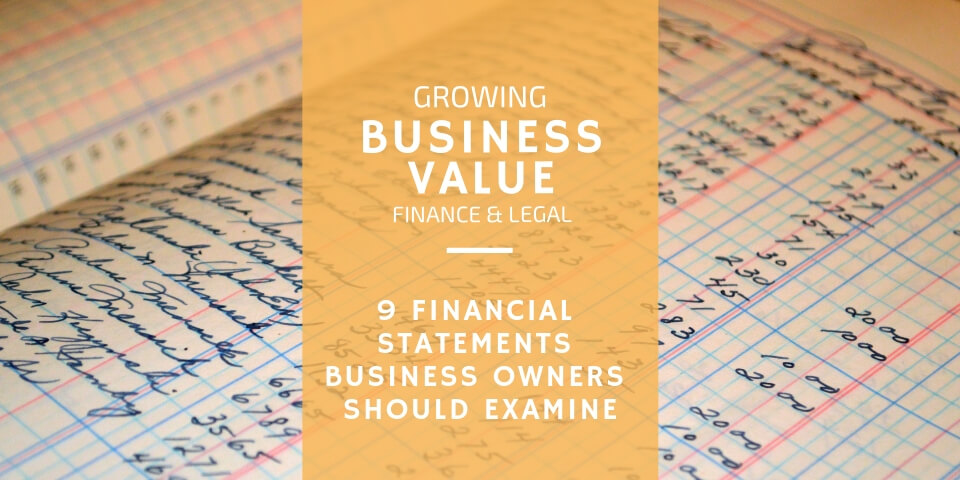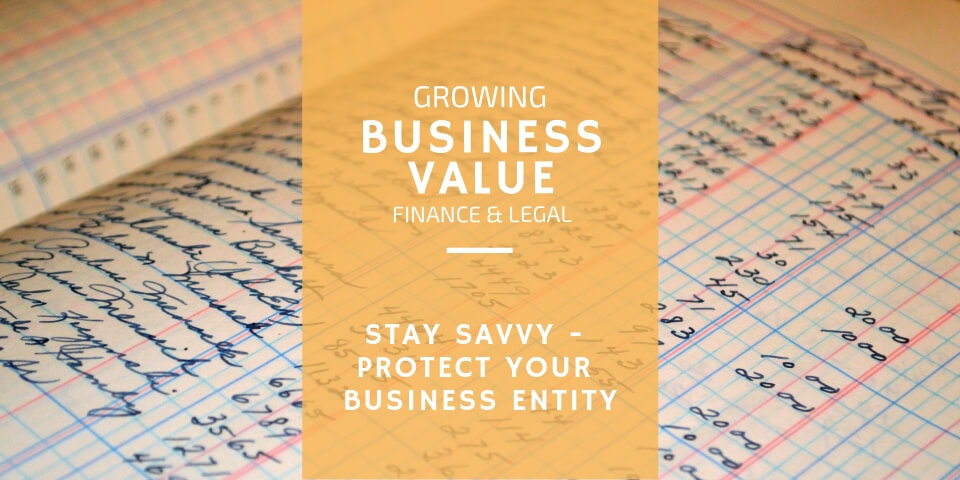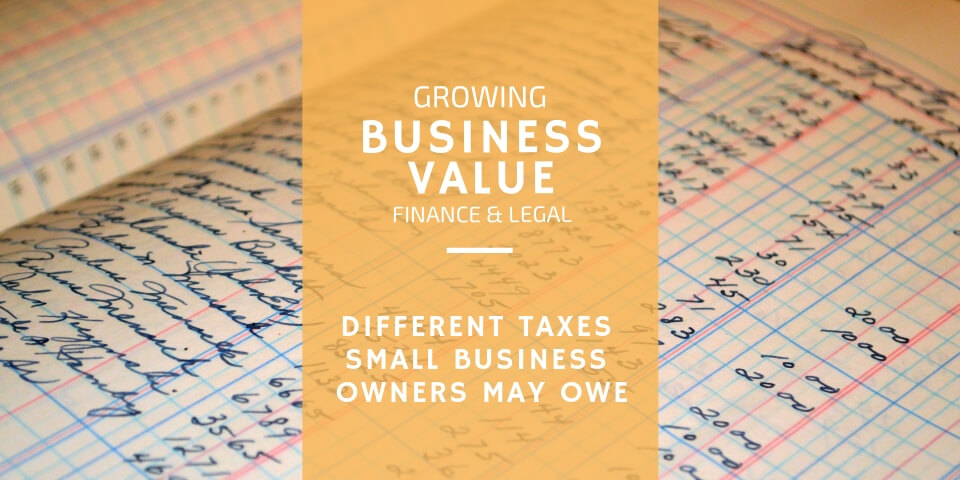
9 Financial Statements Business Owners Should Examine Regularly
March 27, 2019
Stay Savvy… The Basics That Minimize Risk to Your Business
April 1, 2019“Missing” Taxes Checklist for Small Business Owners

A couple of years ago, I was hired to help a business owner plan the sale of his business and build a life long income plan. His company was profitable, and he had worked hard to grow its intrinsic value. Yet, we could not sell his company at the price he desired. Why? Because he hadn’t paid all of his taxes. Now, my client hadn’t purposefully eluded tax payments. He just missed one, year after year. He had no idea it was due, and it ended up costing us the sale of his business. I don’t want that to happen to you. Therefore, I’m giving you a taxes checklist with 11 common taxes small business owners need to check for delinquency.
Podcast Time Index for “The 11 Different Taxes a Small Business Owner Could Pay”
00:26 – The 11 Different Taxes a Small Business Owner Could Pay
01:47 – Income Taxes
04:15 – Estimate Tax
04:50 – Sales Tax on Products and Services Sold
05:32 – Property Tax on Business Property
05:52 – Excise Taxes on Use and Consumption
06:14 – Self-Employment Tax on the Owner’s Share of Business Income
08:01 – Employment or Payroll Taxes
09:57 – Gross Receipt Tax on Businesses
10:29 – Franchise Taxes
10:59 – Sales Tax
12:04 – Real Estate Taxes
12:18 – (12) Professional Privilege Tax
12:37 – Wrap Up
11 Different Taxes Small Business Owners May Owe (and Not Realize)
#1 – Income Tax
Whether you are a small business owner or not, you will pay income taxes in the United States. As a business owner, though, you may not have federal taxes automatically withheld by an employer (FICA) like your employees do. Therefore, you probably have to make quarterly estimated income tax payments based on your previous year’s tax return. Yet, whether you pay income taxes through a personal tax return and/or through your business’s tax return depends on the type of business entity you selected when you opened your business.
For more information on how your company’s entity affects your tax status, returns, and payments refer to The 5 Different Business Types… Pros and Cons of Each.
#2 – Self-Employment Tax
Since you may not have taxes automatically withheld by an employer, you don’t have federal Medicare or Social Security taxes withheld either. Therefore, business owners will also owe Self-Employment Taxes, or the Medicare and Social Security taxes owed by self-employed individuals. Currently, the Self-Employment Tax is 15.3% of your net income (or your business’s net income). 12.4% of that goes to Social Security, and the other 2.9% goes to Medicare.
#3 – Payroll Tax
Even though business owners don’t have taxes withheld by employers, typically, you are employers. Therefore, you will owe the Federal (FICA), Medicare, and Social Security taxes withheld from your employees’ paychecks. Additionally, you will have to match the amount of Medicare and Social Security taxes your employees paid when you pay the taxes to the federal government on a bimonthly, monthly, quarterly, or yearly basis.
#4 – Unemployment Tax
Not only will you owe FICA, Medicare, and Social Security taxes on your employees, you will owe Unemployment Taxes on them. All business owners with employees must pay Federal Unemployment Taxes (FUTA), and some business owners will owe State Unemployment Taxes (SUTA) as well. Usually, these taxes are calculated based on employee earnings up to a $7,000 or $9,000 limit and are due quarterly or yearly.
#5 – Sales Tax
If you sell goods or services through your business, you must collect state and local sales taxes from those purchasing products. That money is not revenue; it’s pass-through money you collect from the buyer and send to the government. Depending on your gross sales receipts, you will owe sales tax monthly, quarterly, or yearly.
As a business owner with a retail certificate, you will not pay sales tax on products you purchase for resale. However, as an individual, you will owe state and local sales tax for any products and services you purchase personally or for business use (unrelated to resale).
#6 – Gross Receipts Tax
If you live in Delaware, Ohio, Washington, Nevada, or Texas, you might owe a Gross Receipts Tax rather than a state income tax. Although the tax often looks like sales tax, it is a tax on the seller, not the buyer. Additionally, the tax is on the gross income the seller receives, not on the net income (sales minus expenses).
#7 – Franchise Tax
If your state doesn’t tax you with a Gross Receipts Tax, it might require you to pay a Franchise Tax. Paying this tax gives you the right to do business within that state, so essentially, it’s a privilege tax. Depending on your state and on your business entity, the tax may be levied based on your net worth, your assets, your number of shares, or your gross receipts.
#8 – Professional Privilege Tax
Some states – Alabama, Connecticut, Delaware, Montana, North Carolina, and Tennessee – also require business owners with a professional license to pay a Professional Privilege Tax for the right to operate their businesses within the state.
#9 – Excise Tax
Maybe you do not owe Franchise Taxes or Professional Privilege Taxes, but you owe Excise Taxes. This indirect tax is levied on the sales of particular goods or services, namely fuel, alcohol, cigarettes, or gambling. Business owners must pay the tax, but they usually pass it on their customers by raising the price of the products or services.
#10 – Real Estate Property Tax
If you or your company own land or real estate, you might also owe Real Estate Property Taxes. Usually, these taxes are calculated by local governing bodies and are based on the value of the physical property.
#11 – Tangible Personal Property Tax
Although you may not own buildings or lands through your business, your business probably owns personal property. Defined as those items that can be removed from the building, your Tangible Personal Property includes things like computers, furniture, tools, machinery, signs, equipment, leasehold improvements, and supplies. Like real estate, local governing bodies calculate your Tangible Personal Property Taxes based on their value. However, unlike buildings or land, personal property tends to depreciate in value, so your Personal Property Taxes are usually not as high as your Real Estate Property Taxes.
SUPPORTIVE READING: What to look for in a Certified Public Accountant – A Must-have Advisor for a New Business
Conclusion
As you can see, taxes can be complicated and confusing. Yet, many are required of small business owners. To manage all the different taxes you may owe, you need the help of a good CPA. You don’t want to miss paying obligatory tax bills now and ruin your chances of selling your business in the future. Educate yourself and ask the right professional for help. Once you know which taxes you owe, you and your team of professional advisors can develop tax planning strategies to decrease the amount you owe.



